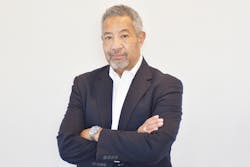What do you want your legacy to be? We have all wrestled with this question at one time or another in our lives.
For some, the answer is easy. "I want to be known as the best lawyer, doctor, father, mother, baseball player, musician, etc. The list is endless. These are all lofty goals and the desire to leave a legacy in these areas is admirable.
But there is another way to think about "your legacy." What kind of person are you and how do you want to be remembered?
Every day you have the chance to have your potential legacy imparted to those you come into contact with. Are you kind to people? Do you treat them with respect? When you are a supervisor and you have to reprimand or fire someone, how do you manage it? With sensitivity and professionalism, or do you regard people as just numbers and reckon that these things need to be done for the good of the business?As a leader, you want to leave a legacy of excellence. Bold strategic initiatives that come to fruition and make a mark on whatever business you are in. You want this kind of legacy. But if you leave a collection of dead bodies in your wake while achieving the legacy of business excellence you crave, then really, how successful were you? I would argue that success was tainted. Every executive experiences challenging times in business – it comes with the territory. But employees are never to be treated as commodities or convenient career stepping stones.
A legacy should evoke positive conversation from your peers and the people whom you work with. You want them to say that "you cared." Be willing to spend time mentoring colleagues in their careers. Provide them a leg up in their own leadership journeys when possible. And when they make a mistake, which they (and you) will do on occasion, are you there to correct them and get them back on track?
Unfortunately, in today’s business world, we see too many in leadership positions struggle with a myopic view of what their own legacy should be. If that leadership legacy is self-centered around personal successes, triumphs, fame and glory, it is a flawed construct doomed to create chaos and turmoil within your team and organization. You see it all too often in business and especially in government. Puffed-up bureaucrats constantly fail to credit staff and support teams, but instead dwell and bathe in the spotlight of their performance. A legacy steeped in braggadocios behavior is weak and fading.
Unfortunately, this is something I used to see in the tech industry where I worked for years. Companies preach about how much they value their employees and their contributions to their success. But when it comes time to execute layoffs for the good of the company, the storyline shifts. As a business leader, I know the difficult decision to lay off or fire an employee is bundled into the executive DNA. It comes with the turf. But the “how” is usually just as important as the “why” when an organization decides to lay course in a different direction. The “how” is what will wind up on your leadership legacy resume. I have heard too many horror stories about people being let go from their jobs via email. Or they are asked to conference in on a Zoom meeting to be told in a group session they are out of a job. Or worse yet, one morning, they are unable to access their work email which has been cut off, or the card key used to enter their office building doesn’t work. These are horrific ways to treat employees who you claim you value. Again, a terrible legacy.
At the end of the day, truly great leaders practice empathy. They are present and make people feel they matter. In this go-go world of business and globalization, where the pace is fast and the challenges are daunting, we may forget the "people" aspect of the business.
Leave a legacy that will truly stand the test of time. One that won't be washed away because of negative scenarios that were preventable. Help those who need help. Care for those who need caring. Listen to those who are crying out for a bit of assistance. Mentor, guide and lead. An admirable legacy reflects not only on an organization’s leadership team but on the entire business.
He spent 22 years with the Central Intelligence Agency, finishing as a Chief of Station. Mike also worked in the CIA’s Office of Security and served on the security staff of the Director of Central Intelligence. He worked in the Counterterrorism Center, ran global programs, and served in assignments around the world. Mike’s first book, “The Art of Ronin Leadership,” is available now.




